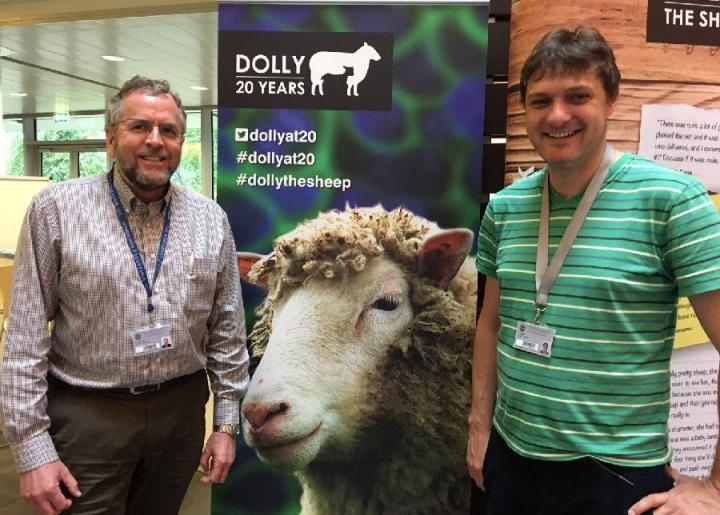Applying animal breeding genetics to plants
Professor Wallace Cowling from The University of Western Australia tells us how spending his summer at The Roslin Institute helped him advance his work.

Professor Wallace Cowling is Associate Director at The UWA Institute of Agriculture, The University of Western Australia, as well as a plant breeder in a company. He was on sabbatical leave with John Hickey’s group at The Roslin Institute from late June to August 2017. In an interview he told us how the time spent at Roslin helped him to advance his work.
What problem have you been trying to solve?
The problem with plant breeding is that we have low genetic diversity and existing methods tend to rapidly decrease diversity. I would like to understand how I can improve plant breeding with greater genetic diversity. Animal breeders know how to do this based on genomic selection technologies, so I wanted to look at plant breeding from the animal breeding perspective.
Why did you decide to spend part of your sabbatical leave at Roslin?
While looking to learn about animal breeding, I went to the University of New England in Australia to meet a famous research group who work in animal breeding, and they told me about John Hickey’s work.
John is interested in how quantitative genetics can be applied to both animal and plant breeding. Given that we have similar interests, I asked John if I could come to The Roslin Institute to learn how his group is applying animal breeding genetics to plants.
What kind of work have you conducted during your time here?
I am exploring how we can make better crop hybrids by modelling hybrid breeding. How can we ensure higher yield and vigour in crop hybrids? We modelled chromosomes to simulate F1 crop hybrid breeding and mimicked genomic selection in real life. The results have inspired me to develop improved methods of crop hybrid breeding.
Will the collaboration with the Hickey Group continue?
Now that I have experienced working at the Institute, I understand why Roslin enjoys its world-leading status in quantitative genetics and breeding, and I am very interested in extending the collaboration.
My big job now that I am back in Australia is to build a group in quantitative genetics and plant breeding so that we can collaborate more effectively with John Hickey’s group at Roslin. Implementing new crop breeding methods with higher genetic diversity will help humanity across the globe. Acting now will put us in a better position in 50 years’ time, when climate change causes a potential decrease in crop yields. My goal is to continue collaborating with the Hickey group to improve crop breeding methods globally, and most importantly in the developing world.


